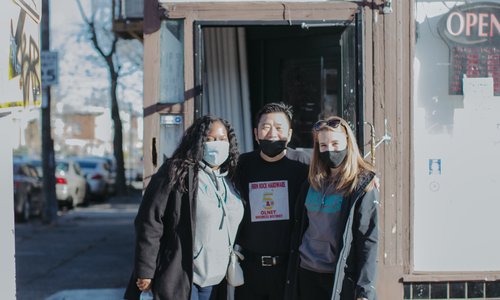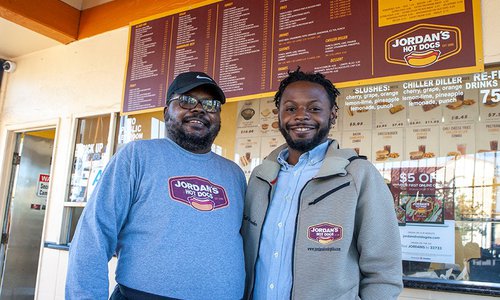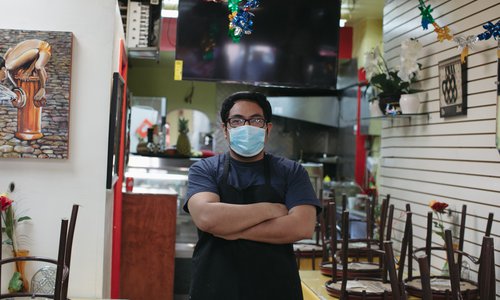Business development organizations (BDOs)
Climate Change Preparedness Toolkit for Business Development Organizations
This guide is intended to support small business owners in both developing a business continuity plan, as well as creating a culture that allows for innovations and transformations.
Bridging the Capital Access Gap
“Bridging the Capital Access Gap” is a five-part video series that takes an in-depth look at the small business financing industry and ways that business owners can use this knowledge to gain access to additional avenues of capital.
New Capital Access Training Breaks Down Barriers For Small Businesses
Access to capital is a critical piece in a small business' growth cycle but is often out of reach for many diverse entrepreneurs. LISC and ICIC created a five-chapter video curriculum aimed at helping small business support professionals and business owners they serve to better understand and navigate their lending landscape. Hear from LISC's Armando Moritz-Chapelliquen and ICIC's Anna Marie Cruz and Howard Wia as they highlight the results of this collaboration and how you can get involved.

A Place-Based Approach for Advancing Equity through the Economic Development Administration
As Congress looks to reauthorize the Economic Development Administration (EDA) for the first time since 2004, LISC’s Matt Josephs and Michelle Harati take a look at new bipartisan legislation that offers a place-based approach to expand equitable access to EDA resources.

“The Health of Black Businesses is the Health of Black Communities”
To support the resiliency and growth of Black-owned small businesses, LISC and Nielsen Foundation have teamed up to provide technical assistance and small grants that can help entrepreneurs surmount the ravages of COVID and historic racial inequities. Part of the funding is earmarked for business development organizations (BDOs) that work with Black businesses based in centers of Black American culture—the Crenshaw district in LA, Bedford-Stuyvesant in Brooklyn, St. Paul’s Rondo neighborhood, and Chicago’s South Shore.

‘Who are you? What are you going to do?’ The Role of Trust in Small Business Recovery
When Covid-19 hit the Bronx, NY, a longtime LISC partner, Mosholu Preservation Corp. (MPC), leveraged its hard-won role as a trusted community resource to help small businesses survive lockdown. Now, with support from LISC and MetLife Foundation, MPC is providing the technical assistance and financial resources entrepreneurs need to move on from a year-plus of restrictions and prepare for the challenges that lie ahead.
Building Equitable Local Ecosystems for Small Business
A new LISC brief offers insight and guidance to stakeholders looking to forge robust small business ecosystems in historically under-invested communities, the same communities that have also borne the brunt of the pandemic's economic fallout.

Setting the Stage for an Equitable Small Business Recovery
Since the onset of the pandemic, LISC has equipped 16,000 small business owners with relief and resilience grants. But to foster opportunity and long-term resiliency for all entrepreneurs who confront entrenched inequities, including people of color, women, immigrants and refugees, and people with lower incomes and wealth, we need a robust universe of small business “ecosystems”: the network of capital, services, and supports that every enterprise needs to get on its feet and grow.

Nurturing Resilience on Louisiana’s Gulf Coast
In the wake of the pandemic and a series of devastating hurricanes, Rural LISC responded with relief grants to entrepreneurs and support for business development organizations, helping buoy a critical rural sector: Louisiana Gulf fisheries. Read on to learn about the people, groups and places touched by LISC's $3.2 million investment in nurturing resiliency for the heritage industry.

For an Inclusive Recovery, We Need Support for Small Business and the Groups that Help Them
LISC’s Michelle Harati reflects on the role of Business Development Organizations in supporting place-based economic recovery and calls for federal funding to support their vital missions.